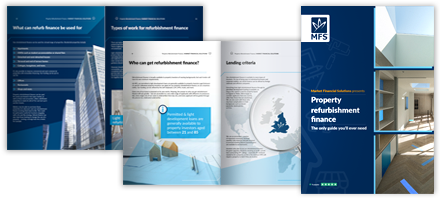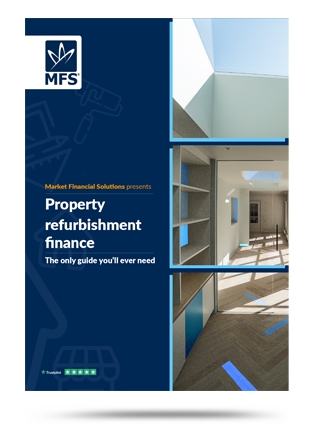Market Financial Solutions are a bridging loan and buy-to-let mortgage provider and are not legal, financial, investment or tax advisers. This document is for informational purposes only and does not, and should not be considered, to constitute legal, financial, investment or tax advice or be relied upon by any person to make a legal, financial, investment or tax decision. Therefore, Investors are encouraged to seek appropriate professional advice. The information in this content is correct at time of writing.

Eco privilege is a modern issue that prevails in both the property market, and the wider economy. Broadly, it refers to those who have the economic means to benefit from the perks (perceived or otherwise) associated from environmentally friendly choices, investments, and living arrangements.
There are a few ways this manifests itself in the property market. Greener homes may command higher prices and/or rents, allowing investors who can afford them to benefit.
There is pressure to upgrade existing housing stock to make them more environmentally friendly, but not everyone has access to the capital that would be needed for this. Those who live in eco-friendly properties may end up living healthier lives overall, etc.
Much of the eco privilege issue has been centred around Energy Performance Certificate (EPC) requirements in recent years. The minimums expected here caused friction in certain corners of the BTL market, yet tougher legislation could be on its way.
The Recent Historical Context – EPCs
An EPC shows how energy efficient a property is, and a certificate is required for selling a property, renting out a property, or building a new property[1]. These certificates follow a rating structure, with G being the least efficient, and A being the most.
Since 2020, it has been illegal to let, or continue to let a residential property with an EPC rating below E, with a few exceptions. But, plans were in put place to raise the minimum acceptable standards. Landlords were set to be required to have an EPC rating of C or higher for new tenancies by 2025. Existing tenancies had to hit the C benchmark by 2028.
Millions were spent by landlords in the buildup to this to bring their assets up to code[2]. But, in late-2023, the plans were scrapped following a review.
Many investors may have thought this would be the end of it, but they may need to think again with a new Labour government in power. Keir Starmer[3] has vowed to upend planning rules in the housing market and get building, which some believe could include reviving EPC plans[4].
Benefits of Going Green
Regardless of legislative imperatives though, it may be worth making a home as green as possible. There can be numerous benefits in doing so. Energy bills could be cut, properties could be made more durable over the long-term, and eco-friendly homes tend to be highly desirable in the market which could lead to high resale values and rents.
But, this is where eco privilege can come into play. Improving a home’s green credentials will likely prove costly. Yet at the same time, not taking action may also end up costing landlords dearly.
Some 18 million homes in the UK have an EPC of D or below, according to Rightmove[5]. Meanwhile, analysis from Habito estimated that it would cost £6,155 in upgrades to push an EPC certificate from a D to a C[6]. All told, the UK’s total retrofitting bill for this could be as high as £38bn.
Financing these upgrades may present an unwelcome one-off expense but over the long-term, not making the investment could prove costlier. Analysis of government data shows that the average energy bill of a three-bedroom house with an EPC rating of F is £4,431 per year. The same house with an EPC rating of C would only pay £1,669 a year in energy bills, on average.
There are green incentives in the market to support and encourage homeowners with all this. Green finance is emerging as a burgeoning element of the lending scene. An increasing number of lenders[7] are offering green mortgages and loans to support (and reward) investors with their environmentally conscious plans.

Limitations
Eco privilege still risks being an issue here too, however. Green mortgages, for example, tend to reward borrowers for moving into an energy-efficient home, or who make improvements to their assets. Said borrowers will typically be rewarded with better terms, or cashback perks[8].
But qualifying for these green deals may be easier said than done, and may be the preserve of those with substantial resources already behind them. To qualify for a green mortgage, borrowers will generally need to be purchasing a property that already has an EPC of A or B[9]. Homes with these ratings are likely to be expensive.
Still, despite eco privilege being an issue, most buyers want to go green where they can. Some 81% of prospective buyers, including first-time buyers, are planning to make energy efficiency improvements to their future homes, according to the Mortgage Advice Bureau.
The Long-Term Implications of Eco Privilege
If the root causes of eco privilege in the housing market aren’t addressed, we risk widening our wealth inequality gap further. In early 2024, Uswitch found that homes with EPC ratings of A or B see their values boosted by nearly £60,000[10]. This may be a great result for those who can afford it, but it may lead to a situation in which only the rich can a live in high-quality, health-friendly homes.
Also, this may add to other inequality issues afflicting our economy. According to the Fairness Foundation[11], Britain is set to become more unfair and unequal over the next five years as inequality rises in health, housing, poverty, and the north-south income divide.
But, there are tools and resources in the market to overcome some of these issues. For instance, various grants and funding schemes are available to help homeowners or private renters on a low-income or means-tested benefit cover energy saving improvements for their homes[12]. These improvements may include wall insulations, lost insulations, installing solar panels or air source heat pumps. All of these may help push an EPC rating upwards. For landlords specifically, the Great British Insulation Scheme, Eco4, and HUG for landlords may all be of benefit.
Investors Have Their Role to Play
It will take effort from across the economy to address our eco privilege issues. Though property investors will likely have a particularly big role to play.
The market needs more energy-efficient homes. Our environmental goals necessitate this. Demand in the scene also indicates clearly that we need to raise supply levels. According to Knight Frank[13], 60% of homebuyers cite energy-efficiency as their primary reason for choosing a new build as their next purchase.
What’s more, 25% of survey respondents cited potential environmental regulations as a key consideration in their decision-making process, up from 20% two years ago. Meanwhile, nearly 30% do not want to install energy improvements themselves, pushing demand for new homes that are setup from the outset.
These preferences may also be behind rising demand for “smarter” homes. Samsung[14] found that home buyers and renters alike are willing to pay 8% extra for tech homes – make living as easy as possible. Environmental consciousness appears to be behind this, with seven out of 10 wanting to improve energy efficiency with smart technology.
Fortunately, property investors have many ways to facilitate, or target all this, and specialist finance can help. Across our bridging and BTL range, our funding can be used for new builds that may already have coveted EPC ratings in place. Also, our refurbishment loans can help bring existing stock up to code, and allow investors to benefit from a fix-and-flip strategy.
Regardless of whether property investors want to take advantage of the potential that the green market has to offer, or simply plan to invest to keep up with the rules, we will be there with funding that will play its part in addressing the eco privilege challenge.
The Complete Guide to
Refurbishment Finance
Everything you need to know
- Basics of refurbishment
- Different finance types
- Lending criteria & calculator
- Real life case studies
[1] https://www.gov.uk/selling-a-home/energy-performance-certificates
[2] https://www.landlordtoday.co.uk/breaking-news/2023/9/millions-already-spent-by-landlords-on-epc-rules-scrapped-by-sunak?source=newsticker
[3] https://www.telegraph.co.uk/politics/2024/07/17/labour-to-build-15m-homes-starmer-kings-speech/
[4] https://www.buyassociationgroup.com/en-gb/news/minimum-epc-rental/
[5] https://www.estateagenttoday.co.uk/breaking-news/2024/6/rightmove-half-of-uk-homes-have-poor-epc-ratings
[6] https://nexusenergysolutions.co.uk/how-much-does-it-cost-to-upgrade-epc-from-d-to-c/
[7] https://www.knightfrankfinance.co.uk/green-finance#:~:text=Green%20finance%20is%20an%20exciting,be%20kinder%20to%20the%20planet.
[8] https://www.moneysavingexpert.com/mortgages/green-mortgages/
[9] https://www.moneysavingexpert.com/mortgages/green-mortgages/
[10] https://ifamagazine.com/homes-with-epc-ratings-of-a-or-b-have-an-increased-value-of-up-to-57k-uswitch/
[11] https://www.theguardian.com/society/article/2024/jun/30/a-deeply-unfair-and-unequal-country-report-warns-of-unprecedented-far-right-gains-in-uk
[12] https://www.eonenergy.com/energy-efficiency-grants/green-homes-grant.html
[13] https://www.estateagenttoday.co.uk/breaking-news/2024/7/demand-for-energy-efficient-homes-on-the-rise
[14] https://thenegotiator.co.uk/news/proptech/home-buyers-and-renters-willing-to-pay-8-extra-for-techy-homes/






